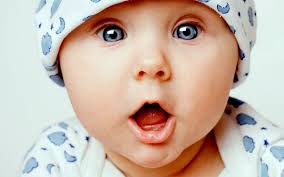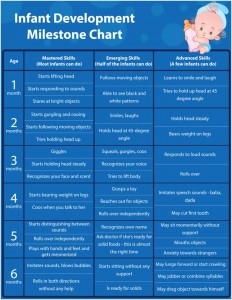The word ‘Infant’ is derived from Latin word ‘infari’ which means ‘unable to speak’.When we talk about infants, toddlers or babies, the first thing that comes to our mind is that they are unintelligent, unresponsive, impulsive and insensitive. We would go on saying that they don’t have an understanding by themselves and they can be directed to do anything anytime. This is a myth.
In fact, it has been proven that the first three years of life are a period of incredible growth in all areas of a baby’s development. This is a time when the three most important physiological developments take place in an infant – motor , sensory and cognitive skills.
Motor skills are the inherent patterns of motor reflexes and responses that develop based on a cascade of event. Each event compensates for a particular necessary trait and also finds its importance in the attainment of subsequent traits. Sensory skills are related to the five senses – Hearing , Vision, Touch, Smell and Taste. The degree of maturation of each of the senses may vary based on baby’s biological clock and environmental factors. Cognitive skills are related to behaviour and emotions, and are a good measure of the normal emotional development. In general, if a skill is found to be developed pre-maturely or as a result of skipping of a few essential intermediary steps, birth defects may be deduced.
So if a baby can learn some of the most difficult set of skills in so much less of a timeframe, how can they be stupid ? The truth is, babies have an exponential developmental curve, as a result of which they can learn around 50 words a day at a tender age of 2 years, in comparison to a normal grown-up, the best out of which can learn at maximum 10 words. So if we were to go back 70 years and somehow get a detector for word cognition, we will be able to prove that a baby actually was smarter than Einstein. The reason behind such a tremendous growth is the ongoing neuronal division process in baby’s brain which increases the total number of neurons. Once the baby grows, the increase in number is slowly transformed into an increase in size of neurons and hence of the brain tissue. As such, adult have to cope up with the girth of information by filtering most of them, while a baby can intake all information at the same time. This randomization in information gathering makes a baby thinks in different ways and observe different things which are mere noises for adults.
So next time, be careful what you say or do in front of a baby, since it is highly probable that they will retain it so long as to imitate it at a later stage of life.
Click here for government certification in Health, Nutrition and Well-being






27 Comments. Leave new
Well written! 😀
Nice article
Nice article
Well written. Nice article.
You know this the reason China try to identify strength points of Chinese children at a very early stage, so that they can make them better in a particular field from a very small age. That is why China is slowly becoming a sporting powerhouse.
I get your point. A similar strategy can be adopted in India, for example the small scale ‘Akhadas’ that are there in many villages can be used.
Interesting article
well written!
That was very well written article .. Keep going..
Thank you Junta! I hope people who like babies find it interesting 🙂
Wow! That was so interesting!
Interesting 😀
hey its nicee 😀
Interesting one !
🙂
Very interesting!
Interesting and well researched!
great …
Nice topic and good job 🙂
Keep going!
Good work 🙂
Amazing to read 🙂
Great work
Well written 🙂
interesting…
The truth is that kids n even toddlers learn, observe a lot from their surroundings.
They adapt to the place where they are born. From the activities of their parents, to whatever that is happening around them even a toddler knows more than we can guess or have an idea about it
children are the hopes of tomorrow..its not good to pressurise them,,agree with what you say
I liked your work. 🙂